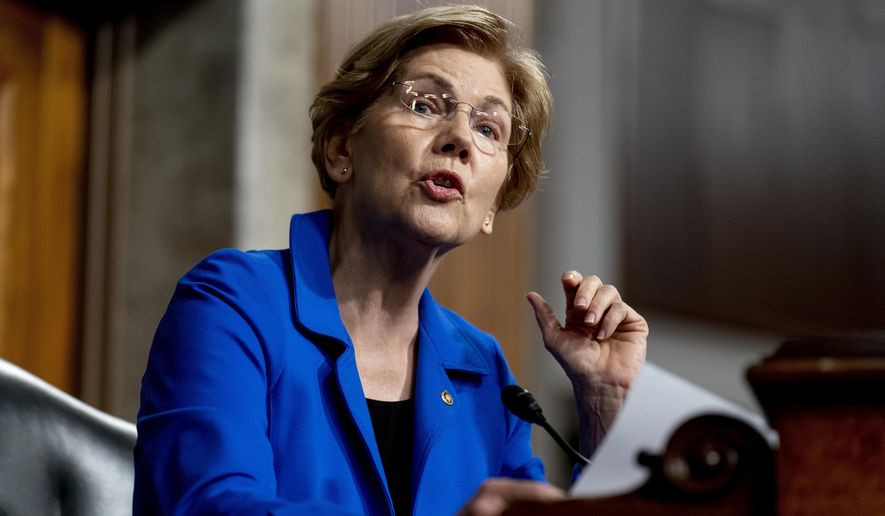Sen. Elizabeth Warren on Monday accused three supermarket chains of cashing in on rising grocery prices to give huge payouts to top executives and shareholders.
The far-left Massachusetts Democrat wrote to the CEOs of Kroger, Alberston and Publix saying that the chains should have used profits to defray some of the price increases hitting consumers.
“Large grocery retailers are earning massive profits for company officials and investors while making it harder for American families to put food on the table,” she wrote. “While many Americans faced the loss of jobs, homes, and loved ones during the COVID-19 pandemic, grocery companies like yours saw immense gains through record sales and profits.”
Mrs. Warren demanded that the companies explain “how you will ensure that your company is not putting its profits over the needs of its customers amidst an unprecedented global crisis.”
In attacking the companies, Mrs. Warren did not mention the supply chain problems or other economic factors that contribute to rising prices.
“It’s clear Sen. Warren’s just trying to deflect from the truth: Her party’s reckless economic policies are the real reason consumer prices are skyrocketing,” said Rep. Jim Banks, an Indiana Republican and chair of the conservative Republican Study Commission.
Mr. Banks has been a vocal critic of Biden administration policies like imposing a vaccine mandate and increasing the size of unemployment benefits. He says those policies have helped cause prices to skyrocket by making it harder for companies to find workers.
Households have seen the average amount they spend on groceries each week jump by more than 25% from $113.50 before the pandemic to $144 today, according to the Food Industry Association.
The group’s spokeswoman, Heather Garlich, declined to comment on Mrs. Warren’s letter. However, she attributed the higher prices to supply chain problems. She also said that families are spending more on groceries during the pandemic because they are eating out less and cooking more at home.
“We went from an eating culture to a cooking culture at home, and demand has not abated,” she said.
Still, she said spending has come down from the average $161 per week cost recorded at the height of the pandemic.
Mrs. Warren put the focus on corporations. She cited Agriculture Department data that supermarkets saw their revenue increase by $162 billion last year as demand increased. She noted that Kroger reported $2.6 billion in profits in 2020, a 5.6% increase from the previous year. Albertsons reported $1.89 billion in net income for 2020, up from $612.1 million in 2019. Publix saw its profits rise by 60% in the third quarter last year over the same period the year before.
“But it appears that rather than defraying costs for consumers or providing hazard pay to essential frontline workers, these profits have gone directly into the pockets of executives and shareholders,” Mrs. Warren wrote.
She said that Publix’s incentive compensation for top executives rose from $360,000 in 2019 to over $1.1 million last year. Kroger CEO Rodney McMullen saw his pay double from $2 million in 2019 to more than $4.8 million last year. Albertsons CEO Vivek Sankaran received a $4.3 million bonus last year, up from the $2.6 million he received in 2019, and on top of his $1.5 million salary.
Spokespeople for the three companies did not return inquiries.
• Kery Murakami can be reached at kmurakami@washingtontimes.com.




Please read our comment policy before commenting.